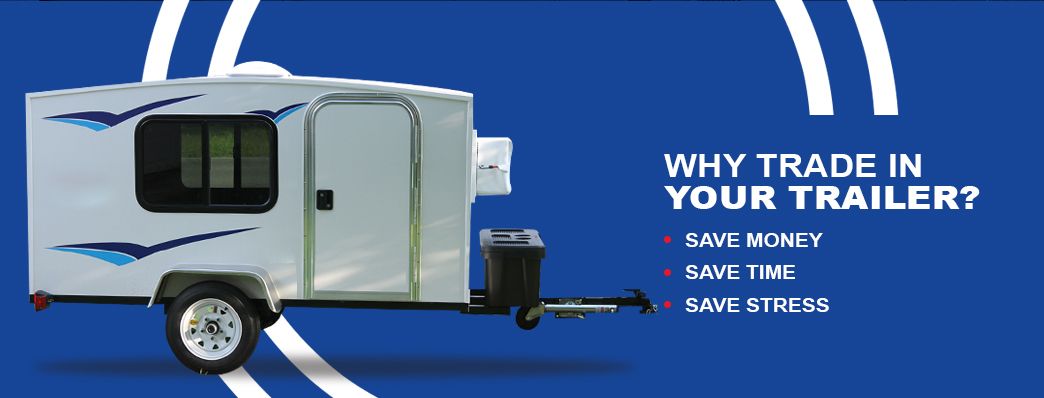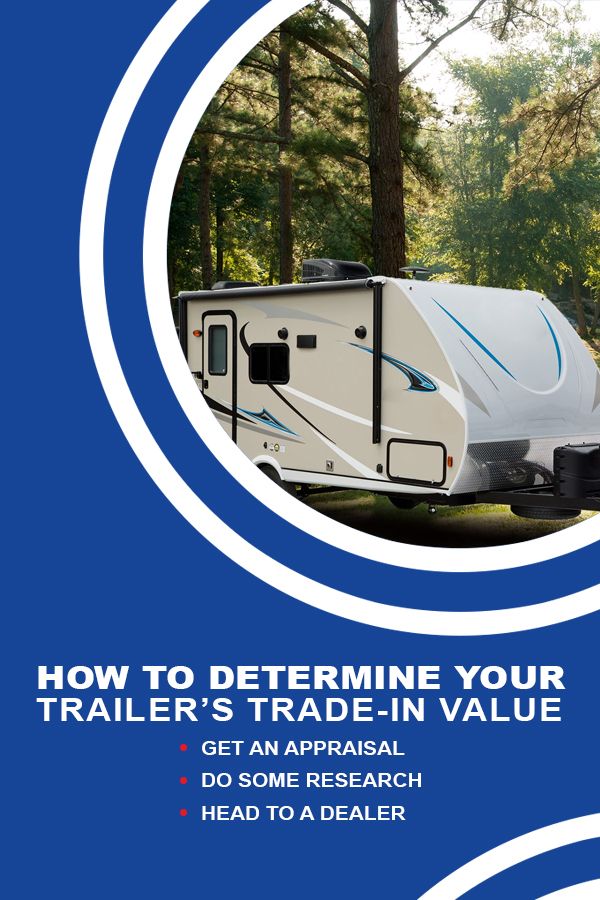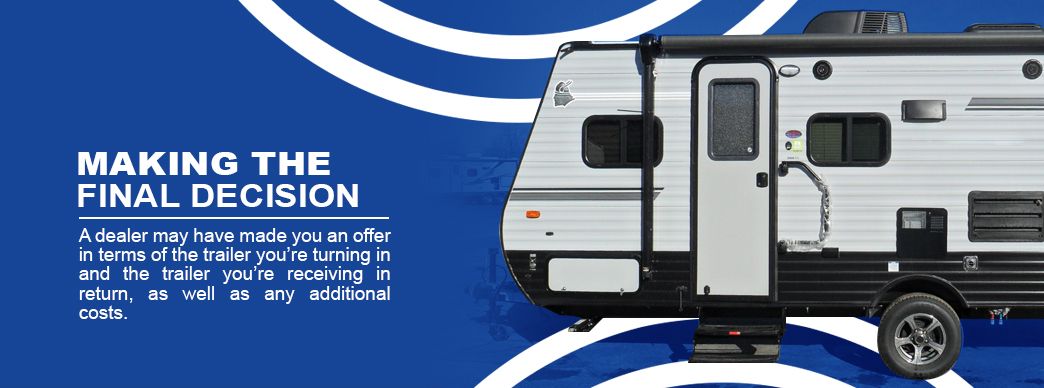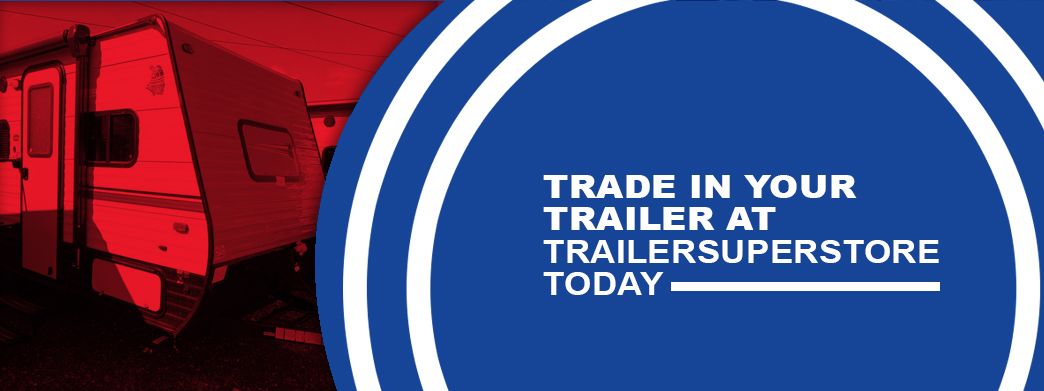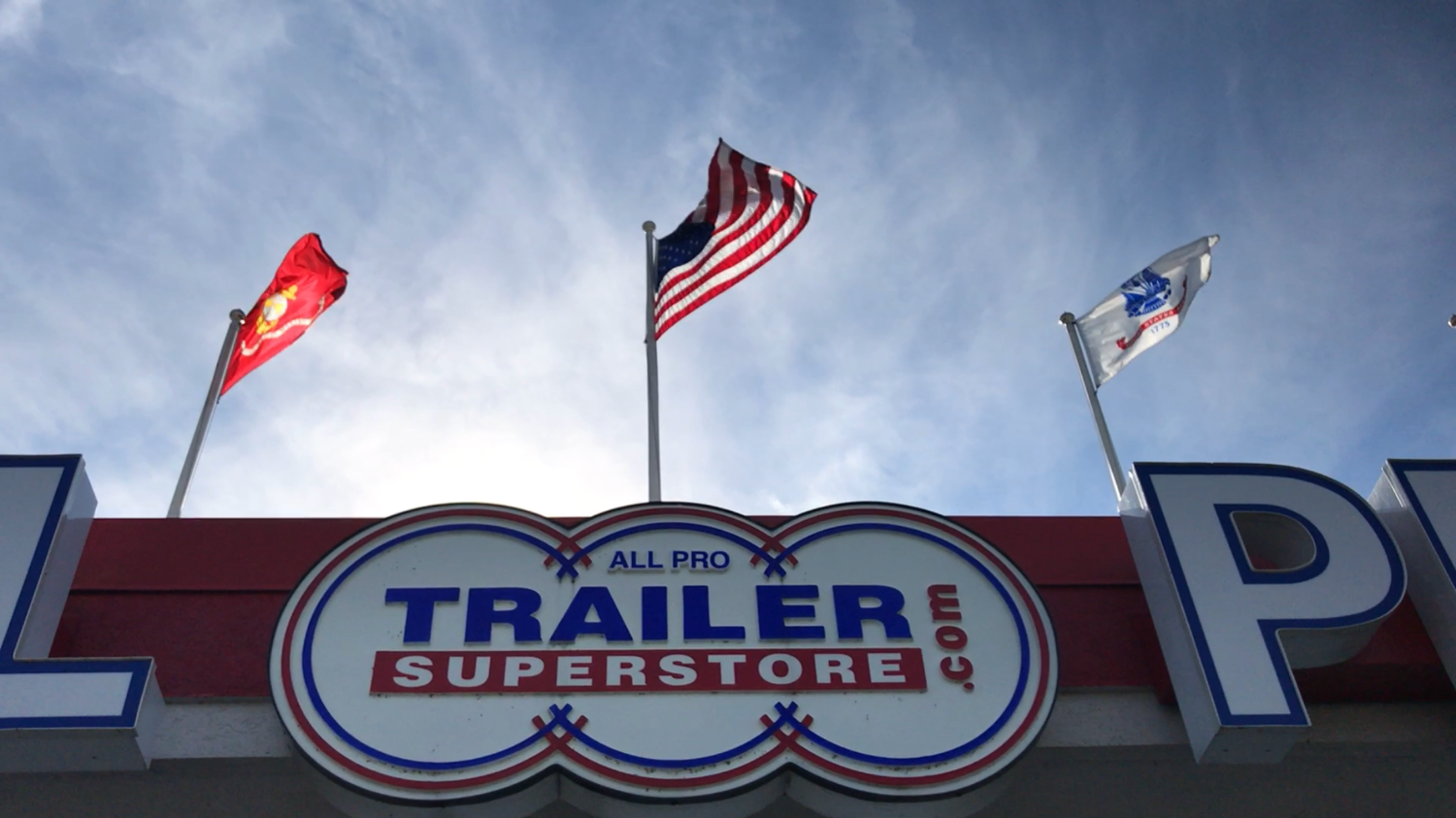Preparing to Trade-In a Trailer
Mar 26, 2019Last Updated on September 30, 2024 by Eric Miller
Last Updated on September 30, 2024 by allprotrailersuperstore
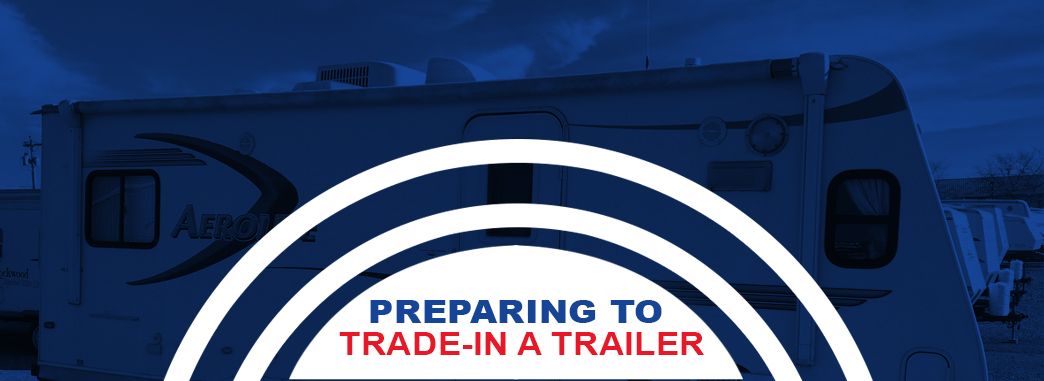
As trailer owners, we all love our trailers, but we’ve also always got our eye out for something that’s just a little bit better. No matter how faithful our current trailers are, it’s perfectly natural to keep watch for something that’s step larger, a touch more efficient or even a bit more technologically advanced.
Or perhaps you’re looking in the opposite direction. Maybe you’ve got your hands full with a trailer that’s decked out with all the bells and whistles, and you’re looking to downsize to something a little simpler. In either of these cases, what’s the savvy trailer owner to do?
The answer is simple. While you could sell your old trailer, give it away or even just park it in your garage for years, there’s a better way. Trailer trade-ins are the perfect solution that lets you get rid of your old trailer while at the same time grabbing that other trailer you’ve been eyeing. It’s a convenient swap, and it saves you plenty of trouble along the way.
Of course, just because it’s convenient doesn’t always mean it’s simple. If you’ve never completed a trade-in before, it’s easy to feel overwhelmed by the process and confused about the right way to handle it. That’s why we’re here to walk you through the process of trailer trade-in preparation as you get ready to perform the perfect trade.
Table of Contents
- Why Trade in Your Trailer?
- How to Prepare Your Trailer for the Big Trade
- How to Determine Your Trailer’s Trade-In Value
- Making the Final Decision
- Trade in Your Trailer at Trailer Superstore Today
Why Trade in Your Trailer?
Technology is continually improving across every arena of our lives. Just as a smartphone today has far more capabilities than one produced 10 years ago, so too is a modern trailer far more advanced than the model you’ve had for the past 10 years. Sometimes, making the upgrade is a no-brainer. If you’re not quite convinced, however, here are a few more good reasons.
1. Save Money
If your unit is over 10 years old, there’s little point in continuing to sink money into it by repairing it as it continues to age and break down. Buying a new trailer costs more money up front, certainly, but it will save money in the long run as you aren’t forced to make constant repairs on equipment that will continue to break no matter what you do.
2. Save Time
Caring for an aging trailer is a time-consuming and frustrating process, in addition to being expensive. Before you can go anywhere, you’ll often need to complete a dozen tune-ups, delaying your trip for hours as you make sure the trailer is in working condition before you hit the road. New trailers have none of these worries. Simply hook it up, and you’re ready to go.
3. Save Stress
There’s nothing more aggravating than having the trailer you just fixed, break down yet again. Between trying to diagnose the problems yourself and constantly running back and forth to the mechanic, at some point, you have to say enough is enough. Spare yourself the trouble and frustration and make the upgrade to a newer model.
How to Prepare Your Trailer for the Big Trade
Once you’ve decided to take the plunge and go for the trade-in you’ve been thinking about, it’s time to dive into the practical planning phase of this trade. First on the list? You’ll need to get your trailer in the best possible shape it can be in before you even talk to a dealer or seller.
1. Evaluate Your Trailer
The best way to get started with the process of shining your trailer up for sale is to complete an evaluation. It’s important here that you do your very best to be objective during this process. We know you’ve had your trailer for years, and it’s only natural to be a bit sentimental about it. But try to view things through the eyes of a potential buyer. They won’t see that crack in the floor and think fondly of all the memories it conjures. All they’ll see is a floor that needs replacing.
As you make your way from one end of the trailer to another, there are just a few categories to evaluate. While you complete this study, you might even come up with a ranking system, giving every category on this list a grade of poor, good or excellent. Keep in mind that every trailer model is different, and your trailer might not feature every category listed here.
- Paint: Is the exterior paint chipping or fading? Or does it still look as pristine as the day you bought your trailer?
- Roof: Exterior roofs face plenty of weathering over the years. Has yours held up well? In a rubber roof, check for stains, discoloration or cuts. In a fiberglass roof, keep an eye out for cracks as well as other obvious signs of damage.
- Wheels: Check to see if the wheels are shiny or rusted, clean or flaking away paint.
- Tires: How old are these tires? If they’re over four or five years old, it’s time to think about replacing them. They also need replacing if they’re damaged, excessively worn or cracked.
- Windows: Check for stains, cracks or pits on each of the windows in your trailer. Keep in mind that some cracks can be hard to see, so pay close attention for even the thinnest hairline cracks.
- Interior walls: Are the inside walls stained, rusted or discolored? What about warping, flaking or fading? All of these factors may lower the value of your trailer.
- Interior ceiling: Leaks are a major factor for ceilings, so be certain to check for those. It isn’t enough to look at your trailer on a sunny day and assume there are no leaks. Wait until it’s raining and then look to make sure no water is coming through the roof. Other things to look for include staining, peeling, warping and rusting.
- Interior floor: If the roof has leaked, it’s possible this has created soft or rotten spaces on the floor. Check that everything is sturdy, and look for signs of rust, mold and discoloration.
You don’t have to be a rocket scientist to understand the main signs of damage you’ll want to check for. Make sure everything still works, is not broken or in danger of breaking and looks its best. It’s that simple. The more clean and functional your trailer’s condition is, the more likely it is that you’ll be offered a trade.
If a potential buyer or dealer notices one or two of these problems, it might not be a total deal-breaker and might not affect the price. If they encounter problem after problem, however, they’re more likely to step back and evaluate whether or not the deal is still worthwhile for them.
2. Decide What to Fix and What to Leave
In an ideal scenario, you could fix every problem your trailer has before selling it. By putting in this work, you can ensure you’ll get the maximum value for your trailer, without losing a few dollars due to a peeling paint job or cracked tires. Unfortunately, this isn’t always possible. Whether you’re dealing with a lack of time, resources, skill or interest, sometimes you need to trade-in your trailer while it still has a few issues lurking in it. The important thing is to decide which bugs are the most important to fix, and which ones you’ll want to leave for the next owner.
One of the best ways to approach this question is to go back to the list you made while evaluating your trailer and look at all the items that require attention. Then, divide these problem items into three separate categories:
- This is a minor problem, and I’m confident that I can quickly and easily address it myself.
- This is a bigger problem, and I can’t fix it myself, but I have a reliable service professional who can. I have a good plan of action in place to fix this issue.
- This problem is more significant than I’m capable of handling. It would be so expensive or difficult to fix that it isn’t worth it to me.
Category one is a no-brainer. These are easy to fix and can be done without any trouble at all. There’s no reason not to fix these problems. Category two items are where you’ll need to exercise your judgment. Ask yourself how much it would cost to fix these items versus how much they might affect the trade-in value of your trailer and decide if it’s worth it to you. For category three, it’s likely that most of these items will be out of your reach. In most cases, you’ll realize repairs aren’t worth it and that those problems are an issue for the next owner.
3. Clean up the Trailer
If you were going to sell some of your clothes, you’d wash them first. If you were going to sell your house, you’d clean it before the first open house. A trailer is no different.
If you want to get the best value for your old trailer, your job is to get it looking as sparkling and fresh as possible. This means cleaning the interior, the exterior and the windows. It may mean giving it a new coat of paint. If any odd smells are lingering inside, do your best to air these out. The goal here is simple. You want to make your trailer look as appealing as possible, and a good cleaning can increase your trailer’s trade-in value.
How to Determine Your Trailer’s Trade-In Value
You might think you have a pretty good idea of your trailer’s value. Unfortunately, your opinion isn’t the only one that matters when it comes to your trailer’s trade-in value. To get an objective view of your trailer’s worth, it’s important to seek a professional opinion.
1. Get an Appraisal
Find a mechanic, dealer or manufacturer near you who does appraisals and have them evaluate your trailer. Make sure to show them all the records you have on the maintenance you’ve performed on the trailer over the years, as these are proof that you’ve taken care of the trailer. At the end of it all, the appraiser will quote you a figure that they believe your trailer is worth.
2. Do Some Research
If getting an appraisal isn’t an option, or even if it is, you can also browse used trailer listings across the internet, looking in particular for listings similar to your trailer.
It’s important to set the expectation that the amount of money you spent on your trailer will not be the same you’re offered for your trailer. Just as with a car, a trailer will depreciate every year it’s in use. Generally, it will depreciate 20% from the first year and ten percent every year thereafter, but this really depends on the overall condition of the trailer and the wear and tear it’s been through.
Ask yourself, will your trailer pass PA inspection or whatever state you live in? If not, how much will it cost to replace the brakes or tires to get it up to the standards we require of all of our used trailers? These numbers will affect the overall offer we give you for your trailer. The amount of money we have to put in on new parts and repairs will generally be heavily considered in our valuation.
3. Head to a Dealer
With this appraisal quote, it’s time to head to the dealer you’re planning on trading to. Set up an appointment and ask for their quote. In other words, how much do they think your trailer is worth? Again, don’t forget to have those service records on hand for quick and easy reference. If they’re interested in acquiring your trailer, they’ll also quote you a price. Remember that they don’t have to trade with you, and if your trailer is excessively run-down or broken, they may not offer a quote.
If they do make an offer, however, and if their quoted price is far below what the appraiser told you, don’t panic. Show them the quote from the appraiser and open a discussion about this price. They may reconsider their position, or they may not, but either way, it’s valuable to have that first quote in hand so you’ll have a reference for whether the dealer’s quote is especially high or low.
In some cases, the dealer may not budge on the value of your trailer, but they may be willing to bump down the value of the trailer you’re trading in for. It all depends on the dealer and the trailers in question and is impossible to predict. Your negotiations may result in a change or they may not. Either way, however, don’t be afraid to negotiate.
Making the Final Decision
A dealer may have made you an offer in terms of the trailer you’re turning in and the trailer you’re receiving in return, as well as any additional costs. In the end, however, the decision is yours. You can take the deal immediately, no questions asked. You can try a different dealer instead. You can think about it for a day and then accept the deal, or you can simply walk away. It’s up to you, and no dealer can force you into any decision you don’t want to make.
But if you think you are ready to make that big decision, then we encourage you to go for it. You’ve put in the work to get your trailer looking as bright and shiny for this moment. So hand over those keys, enjoy taking home your new trailer and watch as all that hard work suddenly seems worth it.
Trade in Your Trailer at Trailer Superstore Today
Have you been sprucing up your old trailer and getting it ready to move on to the next phase of its life? If so, a trade-in might be the right option for you. This allows you to get your old trailer off your hands while allowing you a simpler way to purchase that new trailer you’ve been eyeing. If you’re considering trading in your trailer, then we hope you’ll consider trading it to us here at Trailer Superstore.
Trade-ins aren’t the only business we do here. We are a full-service center for trailers of every size and shape, helping you with everything from changing your tires to customization requests. We’re also a trailer dealership, and while we’re based out of Pennsylvania, we’re proud to serve the entire Mid-Atlantic and New England regions of the United States.
If you think a trailer trade-in is right for you, then we encourage you to learn more about our trade-in process today to get started.


